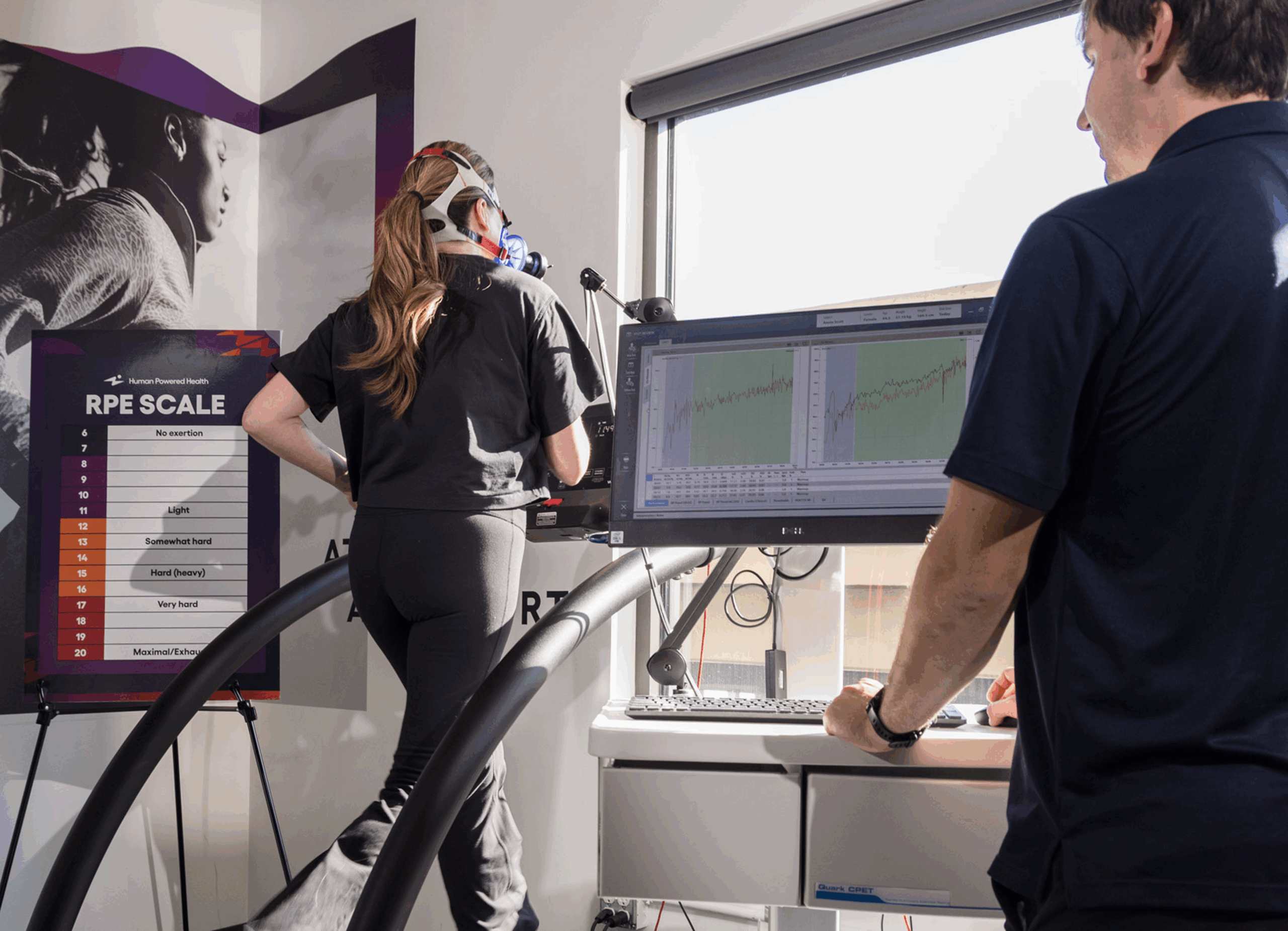
A VO₂max assessment measures the maximum level of oxygen that your body can use during exercise. VO₂max is a strong predictor of athletic performance and one of the best predictors of longevity. It also serves as an early indicator of potential heart or lung issues, offering insights into overall cardiovascular and metabolic health.
You will wear a mask over your nose and mouth while running on a treadmill or biking on a stationary bike*. The mask detects the volume of oxygen you inhale and carbon dioxide you exhale. A performance physiologist will work to gradually and safely increase the intensity of your exercise until you reach the point of maximal exertion, or VO₂max, while measuring your heart rate and respiratory activity. The test is usually 7-15 minutes. Following the test, you’ll have a 30 minute consultation about your unique results and how to improve them.
*You can use your own bike on a Wahoo Kickr Trainer if you prefer. Equipment varies by location, so let us know how you prefer to test.
Everyone can benefit from an annual VO₂max test. Serious athletes require more frequent testing to track the effects of their training.
HemoCue®: Rapid Hemoglobin Testing:
Fast, accurate hemoglobin analysis from a finger-stick sample. In minutes, we can assess oxygen-carrying capacity, screen for anemia and give you real-time data to guide training and nutrition.
Book your free 15-minute virtual consult with a performance physiologist to explore which assessments are right for your body, lifestyle and health and performance goals. This is your opportunity to share your background, ask questions and get to know the expert team who will guide and support you through the testing process.
VO₂max testing is for everyone. While it’s often associated with high-performing athletes, this test provides valuable data and insights regardless of your fitness level. If you're looking to enhance your long-term health, measuring and increasing your VO₂max has been shown to directly impact your longevity. Endurance athletes are able to use their VO₂max to build out a more intelligent training plan.
Human Powered Health does not accept insurance; however our assessments may be eligible for HSA (Health Savings Account) reimbursement. Please check with your HSA provider for a complete list of eligible services.
Your assessment can take up to 45 minutes to accommodate arrival, changing, discussing your goals and the 7-15 minute test itself, and is followed by a 30 minute data review with a performance physiologist to go over the results together (up to 75 minutes total).
Wear athletic clothing in which you can comfortably run or bike.
You’ll receive your VO₂max number and many other metrics including your true maximum heart rate, your heart rate at your anaerobic threshold, heart rate training zones unique to you and more. Based on your results, a performance physiologist will also give you a detailed plan on how to increase your VO₂max.
Yes, your VO₂max results will change in correlation with your overall health and fitness as well as specific exercise and training regimens.
Human Powered Health is staffed with Master's and PhD-level performance physiologists who are dedicated to helping you improve your health and performance. Our product is a healthier you, and we have the science to make you better than ever.
Human Powered Health uses high-precision, research-grade technology for all assessments in order to provide a superior level of service and quality for anyone who wants to learn more about their health and performance metrics.
We are on a mission to power health and athletic performance for motivated humans. Your body belongs to you. You deserve accurate information about it. We give everyone the data and expertise to fine-tune their own health and athletic performance. Because knowledge is power, and true health is self-made.